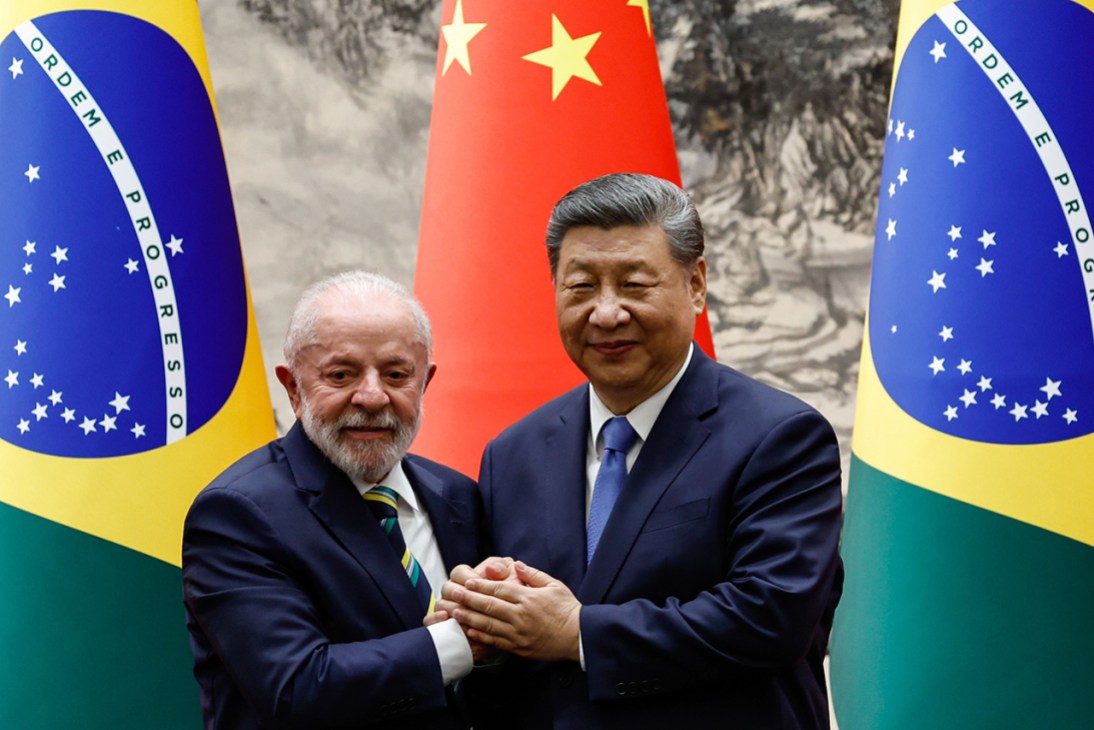Trump’s tariff threats against Brazil are only pushing Latin America towards China
When Donald Trump threatened to impose a 50 per cent tariff on Brazilian goods last week, the reaction in Brasília was swift and vocal (writes Bryan Harris). This economic sanction had little financial motivation; rather, as the US president made clear, the proposed punishment was a rebuke of the ongoing trial of former Brazilian president Jair Bolsonaro, who is accused of leading a coup attempt. Scores of politicians lined up to criticise the US administration for impinging Brazil’s sovereignty and putting the interests of one man above those of a nation. The choral reaction, in cities from Belo Horizonte to Belém, was in stark contrast to the markedly hushed responses of Tokyo and Seoul to recent US tariff threats. In South America, the longer-term fallout is likely to be more profound.
Washington has lost its footing on the continent just as Beijing has been deepening its diplomatic and economic relations here. China is now South America’s largest trading partner and second only to the US in Latin America as a whole. As the White House continues to alienate nations in the region with its approach to immigration, organised crime and tariffs, Beijing has a golden opportunity to push Washington out of what it naively calls its “backyard”.

China clearly recognises the moment. In late May, Xi Jinping hosted high-level delegations from dozens of Latin American and Caribbean nations. Along with a good dose of pomp and pageantry, the Chinese leader amped up the rhetoric, highlighting how all of those assembled – himself included – were “important members of the Global South”. These were not just lofty words. Beijing also announced a new €7.7bn credit line and fresh infrastructure investment plans. Days later, it initiated visa-free travel to China for citizens of Brazil, Argentina, Chile, Peru and Uruguay. And if there was ever a question of the effectiveness of this charm offensive, it was quickly answered by Brazil’s president, Luiz Inácio Lula da Silva. “China deserves to be looked at with more affection and no prejudice,” he said.
China’s focus has primarily been on fuelling its own domestic growth by ensuring a steady supply of natural resources and raw materials – including oil, iron ore, copper, lithium and agricultural products – through co-operation with this region. But with a population of more than 650 million people, Latin America is also an attractive market for Chinese goods, especially technology and cars.
The greater game at play, however, is geopolitical. China is seeking to counterbalance US hegemony in the western hemisphere. The clearest example of this is Beijing’s growing control over some of Latin America’s largest ports: it is believed that it has built or operates 31 of them in the region. The fear in Washington is that Beijing could use these ports to disrupt US trade, shipping and logistics in the event of a conflict.
Washington has sharply intensified its rhetoric in the past six months. In February the White House practically forced Panama’s exit from China’s flagship infrastructural Belt and Road Initiative. It also hinted at trade repercussions against Colombia if it joined the scheme (which it later did). The US’s strongman posture, however, has only served to alienate political leaders. Colombia’s president, Gustavo Petro, has already engaged in heated exchanges with the White House. And in Brazil, Lula continues to show no intention of backing down in the face of Trump’s threats. In response to the 50 per cent tariffs, he said, “Brazil will not accept any form of tutelage.” Chinese businesses and the country’s government know the art of the deal here. When will the US learn?
Harris is a regular Monocle contributor. For more opinion, analysis and insight, subscribe to Monocle today.



